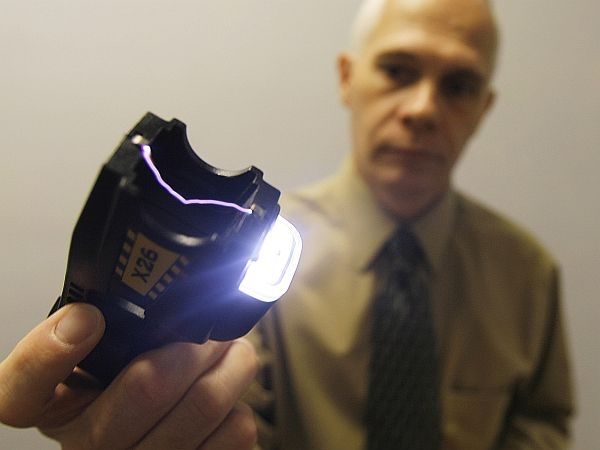
Attorney General Bill Sorrell will not file criminal charges against a state police officer who fired a stun gun at an unarmed man last June.
The man died from the electric shock to his chest. After a seven month investigation, Sorrell said the use of force was justified.
But the attorney general’s findings have not quelled the controversy over whether stun guns should be used on people undergoing a mental health crisis.
Sorrell makes clear that his investigation was limited to whether criminal charges should be brought against State Police Trooper David Shaffer.
"This was a review as to whether this was a murder, or criminal assault on the part of the trooper. We found that was not the case," he said.
On the afternoon of June 20, Trooper Shaffer responded with other officers to a home in Thetford. They were there because 39-year-old Macadam Mason was distraught and had threatened to kill himself. Mason, who had suffered an epileptic seizure the day before, had called a local hospital for help and the hospital staff called police.
What happened next is in dispute. Witnesses, including Mason’s girlfriend, have said Mason raised his hands in a surrender gesture before Shaffer fired his weapon.
Police said Mason – who was unarmed – refused to comply with the trooper’s orders, and made a threatening move. Sorrell’s investigation – done in conjunction with the Orange County state’s attorney – basically supports the state police version of events. Sorrell said state law allows officers to use force if they believe they or others are in imminent danger.
"Here, under the circumstances, all the circumstances, and after considering the interviews of everyone who was present we reached the conclusion that this was not criminal conduct on the part of the trooper," he said.
Macadam Mason’s longtime girlfriend, Theresa Davidonis, has filed a civil lawsuit against state police. Her attorney, Thomas Costello from Brattleboro, has been involved in other lawsuits against police, including a case 12 years ago in which Brattleboro police shot and killed Robert Woodward, who was armed with a knife. Attorney General Sorrell in that case also ruled that the use of force was justified.
Costello said both the Mason case and the Woodward incident involved a deadly police response to people who were mentally distraught and needed help.
"But worse than Woodward, here Macadam had no weapon, and they knew he had no weapon. And worse than in Woodward, he was on private property. And worse than Woodward, the owner of the property, Theresa, begged them not to enter," he said. "They disregarded her order. They knew he was impaired. And they disregarded the order of the Taser company, and shot him in the heart and he died. That’s unacceptable."
Allen Gilbert is executive director of the Vermont chapter of the American Civil Liberties Union. He said Mason’s death shows that the electronic stun guns should not be used except when lethal force is justified.
"There’s a man dead today who really should not be dead. An officer shot him with a Taser stun gun. The officer was not following guidelines that Taser itself says should be followed," he said. "You know, there are no charges. But there’s no accountability that’s been fixed for this incident. We still haven’t figured out how to make sure something like this doesn’t happen again, and that’s really troublesome."
State police policy says stun guns should not be used on people with a disability, if the disability makes it hard for the person to follow commands. Costello and Gilbert said Macadam Mason was mentally disabled at the time, and police failed to follow their own policy.
But Sorrell’s report says Trooper Shaffer did not know Mason had a history of epileptic seizures.
Earlier: VPR special report on stun guns